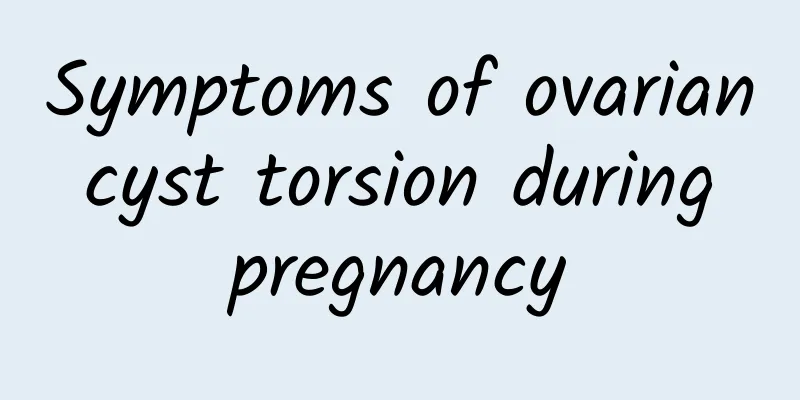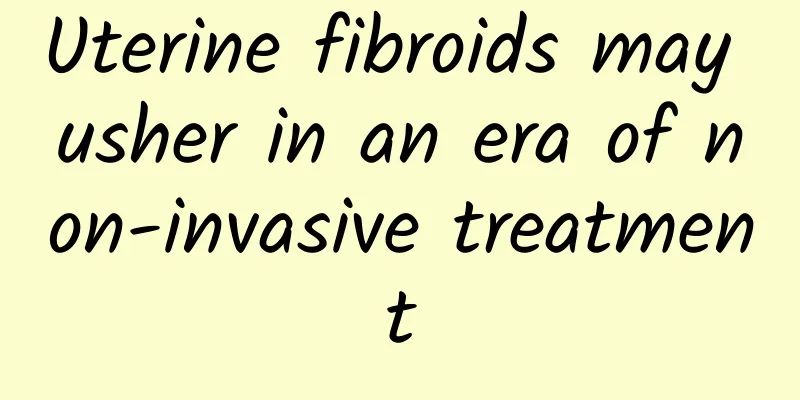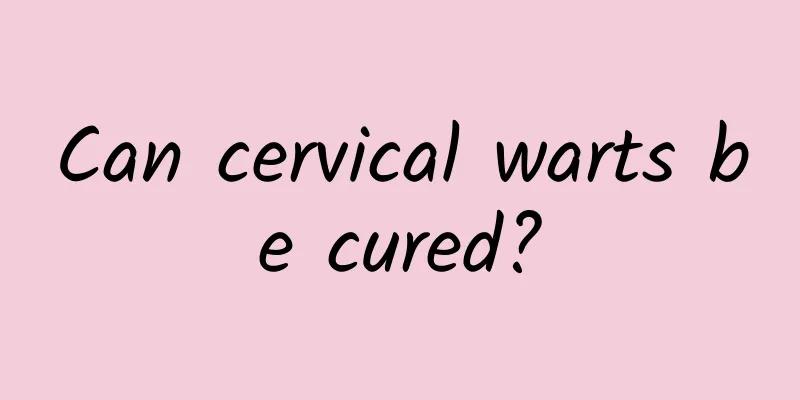Symptoms of ovarian cyst torsion during pregnancy

|
Ovarian cyst torsion during pregnancy that causes pain requires immediate medical attention, usually because the position of the ovarian cyst and the change in blood supply are caused. Seeking professional medical help is the first priority, and management may involve medication management, surgical adjustments, and daily monitoring. 1. Cause analysis During pregnancy, an ovarian cyst may twist due to the pressure of the enlarging uterus. This is because as the pregnancy progresses, the expanding uterus puts pressure on the ovaries, changing their normal position and blood supply, which can cause the cyst to twist. Changes in hormone levels may also play a role in the formation and development of the cyst. In some cases, external factors such as strenuous exercise or rapid changes in body position can also be the cause of torsion. 2. Treatment recommendations Medical intervention is the first choice when ovarian cyst torsion causes pain. Common treatments include: -Medication management: Use analgesics to relieve pain, and hormone balancing drugs as appropriate. -Laparoscopic surgery: A smaller, less invasive procedure with fewer risks that can be used to untwist. -Laparotomy: If the cyst is large or other complications have occurred, it may need to be treated through laparotomy. 3. Daily monitoring and preventive measures To reduce the risk of ovarian cyst torsion, regular prenatal checkups are required during pregnancy so that doctors can detect and treat potential problems in a timely manner. Avoiding strenuous exercise and sudden changes in body position and maintaining a moderate amount of activity can help reduce the possibility of torsion. In terms of diet, it is recommended to eat a balanced diet of foods that help improve hormone balance, such as foods rich in omega-3 fatty acids. Ovarian cyst torsion during pregnancy is a health issue that needs to be taken seriously. Knowing its causes and treatments, as well as taking appropriate preventive measures, such as regular medical examinations and a healthy lifestyle, can help reduce the likelihood of such events and protect the health of mother and baby. In the event of acute pain or abnormal conditions, seek medical help immediately. |
<<: Does normal endometrium mean premature ovarian failure?
>>: Can abnormal leucorrhea be treated?
Recommend
Taking too many birth control pills can also cause uterine fibroids
Contraceptive pills are one of the contraceptive ...
No plastic surgery required! Fight sagging buttocks with these 5 tricks
No plastic surgery required, these exercises desi...
What harm will irregular menstruation cause?
Among the gynecological diseases of women, irregu...
What are the main causes of pelvic inflammatory disease?
Gynecological diseases such as pelvic inflammator...
The dangers of surgery for hyperprolactinemia
If hyperprolactinemia is pathological, it is a di...
What is the difference between induced labor and artificial abortion? One induced labor equals several artificial abortions.
What is the difference between induced labor and ...
US study: Resveratrol in red wine reduces Alzheimer's disease
When dining at a high-end western restaurant, red...
Is back pain caused by bad posture? Nutritionist: Calcium deficiency is a warning sign, here are 3 easy ways to supplement calcium
If you often suffer from back pain, don’t think i...
What to do if a pregnant woman has endometrial tuberculosis
What should a pregnant woman do if she has endome...
Pelvic effusion Delayed menstruation
Pelvic effusion Delayed menstruation If it is con...
What are the dietary therapies for patients with cervical warts?
The dietary precautions for cervical warts can he...
Let's analyze the causes of uterine fibroids
In recent years, uterine fibroids have frequently...
How to prevent vaginal candidal infection
How to prevent candidal vaginitis? Many people ar...
Symptoms and characteristics of ovarian cysts in adolescent girls
The ovaries are an important part of the female r...
Does exercising on an empty stomach help burn fat? Does exercise have to make you sweat profusely to be effective? 4 sports myths to avoid
You finally started exercising, but are restraine...









